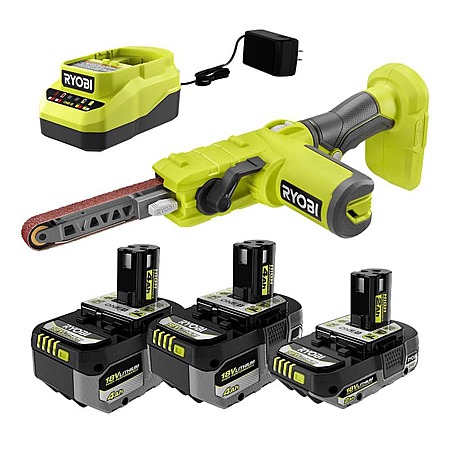expiredRokket | Staff posted Dec 30, 2024 01:53 PM
Item 1 of 1
expiredRokket | Staff posted Dec 30, 2024 01:53 PM
Ryobi One+ 18V 1/2" x 18" File Sander w/ 2x 4Ah + 1x 2Ah Battery & Charger
+ Free Shipping$149
$481
69% offHome Depot
Visit Home DepotGood Deal
Bad Deal
Save
Share

Leave a Comment
22 Comments
Sign up for a Slickdeals account to remove this ad.
It seems the above 2x 4ah + 1x 2ah HP + dual charger = $159.
I don't need the file sander but tempted to get this for the batteries. I currently have 6 of the regular 4ah batteries and can't do both front and rear yard work in one go during the summer.
I also don't charge the batteries right when they've been used (usually hot/warm) and try not to keep them on the charger too long after they're full.
Of course, people are saying don't go lower than 20% and don't charge over 80%. I don' think that's feasible for my needs, however.
Sign up for a Slickdeals account to remove this ad.
Basically don't force the tool to squeeze out every last bit of energy when it's clear the pack is nearly drained, and if it's drained never just leave it that way without recharging.
The 20%/80% rule in my opinion is pretty excessive and unnecessary for removable Li-ion batteries. However storing them at 50% at room temperature, or in the refrigerator if fully charged definitely helps with battery lifespan.
Basically don't force the tool to squeeze out every last bit of energy when it's clear the pack is nearly drained, and if it's drained never just leave it that way without recharging.
The 20%/80% rule in my opinion is pretty excessive and unnecessary for removable Li-ion batteries. However storing them at 50% at room temperature, or in the refrigerator if fully charged definitely helps with battery lifespan.
Sign up for a Slickdeals account to remove this ad.
Leave a Comment